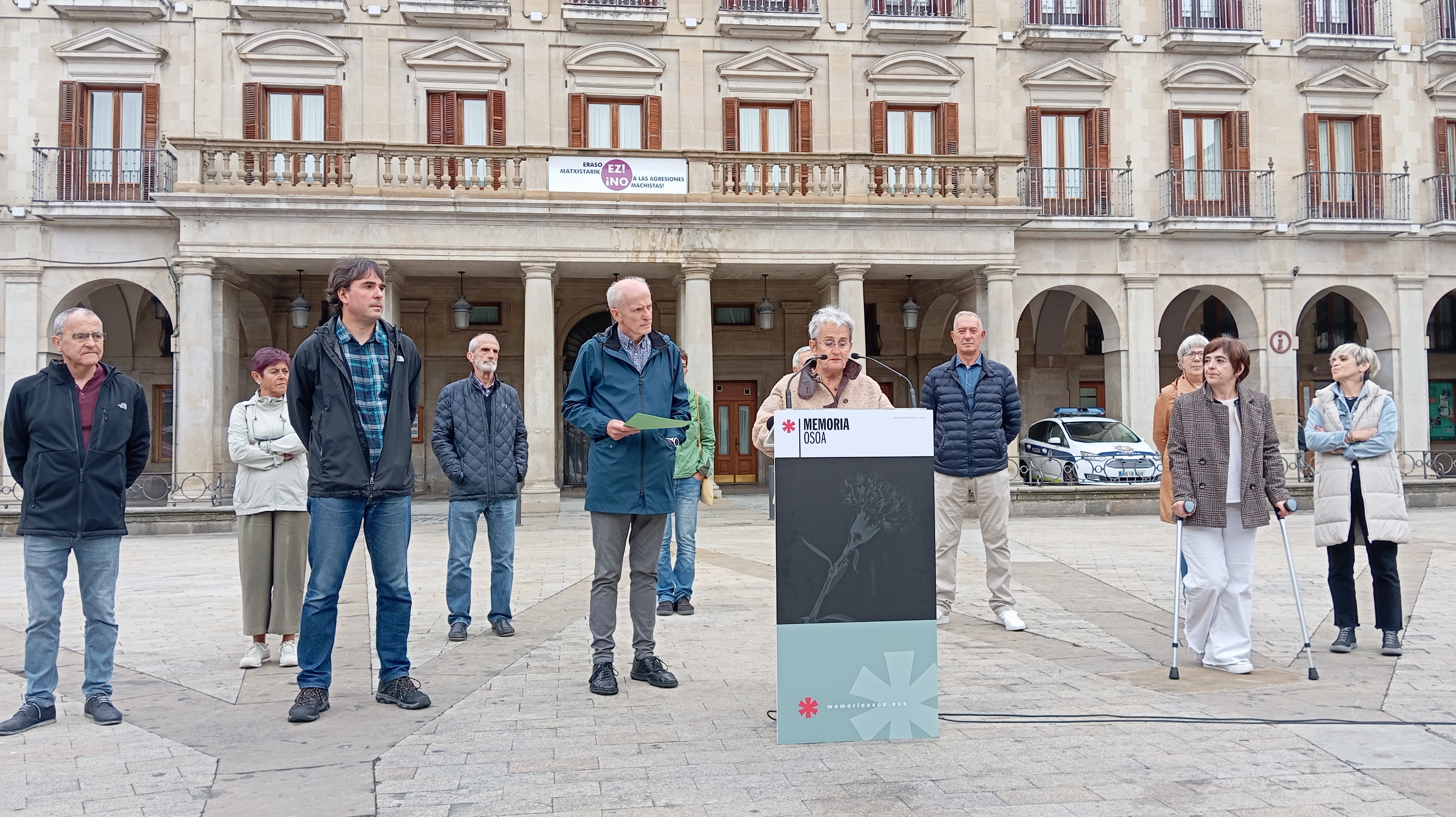
- The Memoria Total initiative has denounced that several institutions are promoting inequality among victims of violence and have called for this direction to be "hardened". The initiative brings together 15 associations of victims of state violence. On 12 October the Civil Guard will hold an event for the first time in downtown Vitoria-Gasteiz, and in response to this, the Report has announced the initiative.

The rapporteurs have recalled that two months ago the City of Vitoria-Gasteiz awarded the Gold Medal to the Foundation Centre for the Memory of Victims of Terrorism at the same site of the Plaza Nueva de Vitoria-Gasteiz. They then rejected the decision of the City Hall, because this award rewards the “discrimination that this foundation promotes among the victims”. At the press conference, Asun Lasa, sister of José Antonio Lasa Arostegi, killed by the LAGs, and former director Martxelo Otamendi, who was tortured in the Egunkaria case, took the floor. Unai Romano, who was tortured by the Civil Guard, and Pilar Garaialde, who was expelled from the Gogora Institute tonight, have also been present.
Instead of correcting this attitude, they have denounced that the organization of acts is being stepped up so that victims are again victims. Among them is the exhibition that the Civil Guard made on September 28 in Bilbao in front of the Maritime Museum, or the parade announced by the Civil Guard in the Plaza Nueva de Vitoria-Gasteiz for October 12. In Pamplona/Iruña, for example, the Civil Guard will parade every year along the Avenida de Galicia on October 12, the day of its patron saint, but in Vitoria-Gasteiz it will do it for the first time and also in the plaza that houses the city council.
The Total Report has denounced that these acts pay tribute to the Civil Guard, when this force has violated the human rights of thousands of people, “violations that have not yet been condemned”. They have recalled that they are victims of the violation of human rights and therefore express their opinion, always “in respect of all sensitivities and arrivals”, but without losing their objective: “democratic coexistence”.
In 2016, the Basque Institute of Criminology gave the Basque Government a report on cases of torture in the CAV between 1960 and 2015: Of these, 3,577 are documented and guarded at the institute. The Euskal Memoria Foundation has included in the book Oso has been very hard over 9,600 cases of torture in the last 50 years.
Changing course in victim policies
In the hearing of Memoria Total, they pointed out that the change of direction that is taking place in the new Basque Government in terms of human rights, memory and victim policies is evident. “It seems that the new managers intend to erase from one day to the next what the social majority has built over the last ten years with much effort, hope and firmness.”
They have stressed that political and criminal responsibilities are deducted from their victim status, but that perhaps the new memory rulers do not want to deal with them and that is why they are making the changes. They believe that it is a matter of imposing a story rather than constructing coexistence, and that Vitoria-Gasteiz is at the head of that change of direction. They say that “the principles of equality and non-discrimination should guide the work of the institutions”, so they appeal to the City Council of Vitoria-Gasteiz and the Government Delegation in the CAPV not to become victims again and to work to overcome the asymmetry between the victims.
They have already requested a meeting with the Mayor, Maider Etxeberria, to which they will also convey their thoughts: “If something has taught us this process is the dialogue to move forward, the consensus and, above all, the respect for plurality and plurality that exists in our society”.